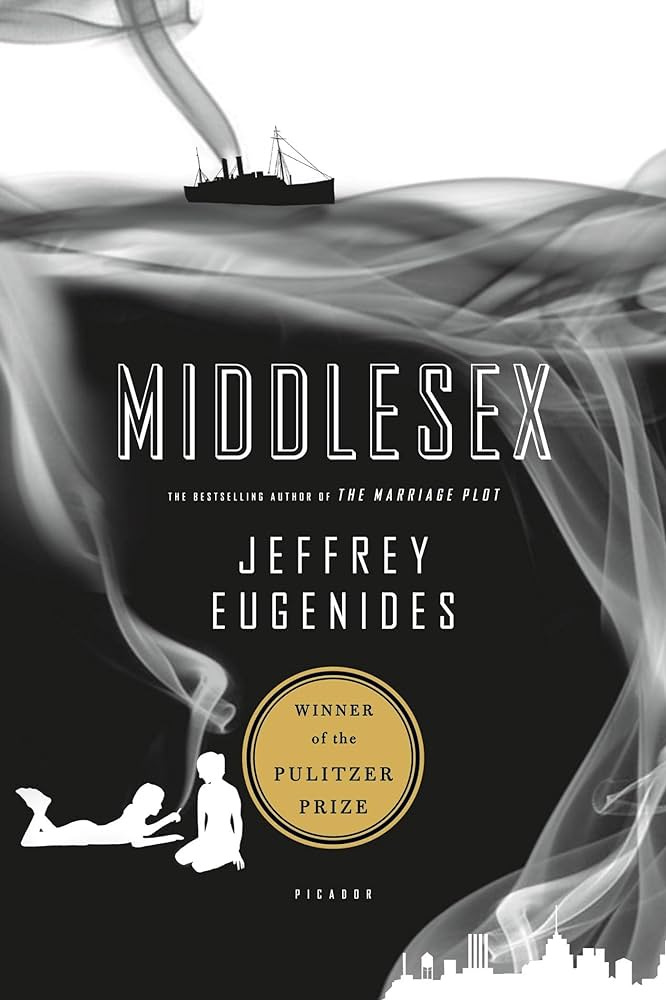What to Read Next: Family Chronicles
Issue #343, featuring Jeffrey Eugenides and Louis Bromfield

Happy Friday, readers!
This week I’m covering a couple more Pulitzer winners, both of them from the Fiction category. Big, multi-generational family stories are always a big hit in our household. Middlesex, published in 2002, certainly falls into that category. Early Autumn, published in 1926, isn’t quite as epic, but also chronicles an emotionally powerful family story.
Let’s jump right in.
Middlesex by Jeffrey Eugenides
Eugenides’ epic, Pulitzer-winning 2002 title was our book club’s pick for August. The story covered a lot of multi-generational ground while offering a connective through-line of our narrator’s experience growing up as an intersex person.
From the first line, readers are given a hint of the complexities in store:
“I was born twice: first, as a baby girl, on a remarkably smogless Detroit day in January of 1960; and then again, as a teenage boy, in an emergency room near Petoskey, Michigan, in August of 1974.”
What’s really tricky, for both author and reader, is that Cal’s particular genetic brand of intersex also requires an incestual story line. It was rather incredible, then, when Eugenides could turn a brother/sister relationship into a husband/wife relationship in a way that felt incredibly authentic and sympathetic.
Beyond the relational drama (and there’s *plenty* more than what’s mentioned above), Eugenides expands the scope of Middlesex so that it becomes an immigrant story, a Detroit story, a race and religion story, a gender story, and ultimately, a coming-of-age story centered on learning to accept yourself.
There were plenty of critiques in our book club discussion. Eugenides sometimes seemed to veer from literary to pretentious and he included at least three head-scratching plot surprises. But, for the most part, we all really appreciated his portrayal of this young woman’s discovery and response to her genetic anomaly.
Middlesex is utterly unique among the all books I’ve read. Given its 500+ pages I have a hard time broadly recommending it, but if the premise intrigues you — as it did our book club — I think you’ll find it well worth your attention.
Early Autumn by Louis Bromfield
Of all the early Pulitzer winners, Bromfield’s Early Autumn was perhaps the most pleasantly surprising. From the start, I couldn’t help but think that it was like a Jane Austen society novel, but set in America and written with American vernacular.
The Pentlands are a wealthy old New England family. The women of the middle-aged generation — Olivia and Sabine — form the heart of the novel. Olivia married into the family and generally lives an unexciting life, caring for Pentlands both young and old. Sabine, on the other hand,
In addition to sharing thematic elements with Jane Austen, I also thought of Francie from A Tree Grows in Brooklyn. The main difference from those stories is that Olivia is approaching 40. She has to reckon with an existence that’s been void of meaning:
“they had all been caught in the toils of something stronger than any of them, a force which with a cruel injustice compelled her to live a dry, monotonous, barren existence when she would have embraced life passionately”
Sabine, on the other hand, has recently divorced her European husband and is back in the states to meddle around. On the surface, her life is much more exciting. But does it actually have more meaning and passion? Through Bromfield’s middle aged characters, Early Autumn asks about that complex line between duty and desire. Is it possible to have a full life in the midst of day-to-day mundanity? Or do we need to break out of that for something fresh and exciting? If you’re hoping for clear-cut answers, think again.
Early Autumn is an easy-reading novel that I think many people will enjoy, especially if you’re a fan of family/society stories. It’s a shame it’s been lost to history.
Thanks so much for reading. I deeply appreciate your time and inbox space.
-Jeremy



I just found the Bromfield book on Kindle for 99 cents. Got it, and thanks as always for the insightful posts.